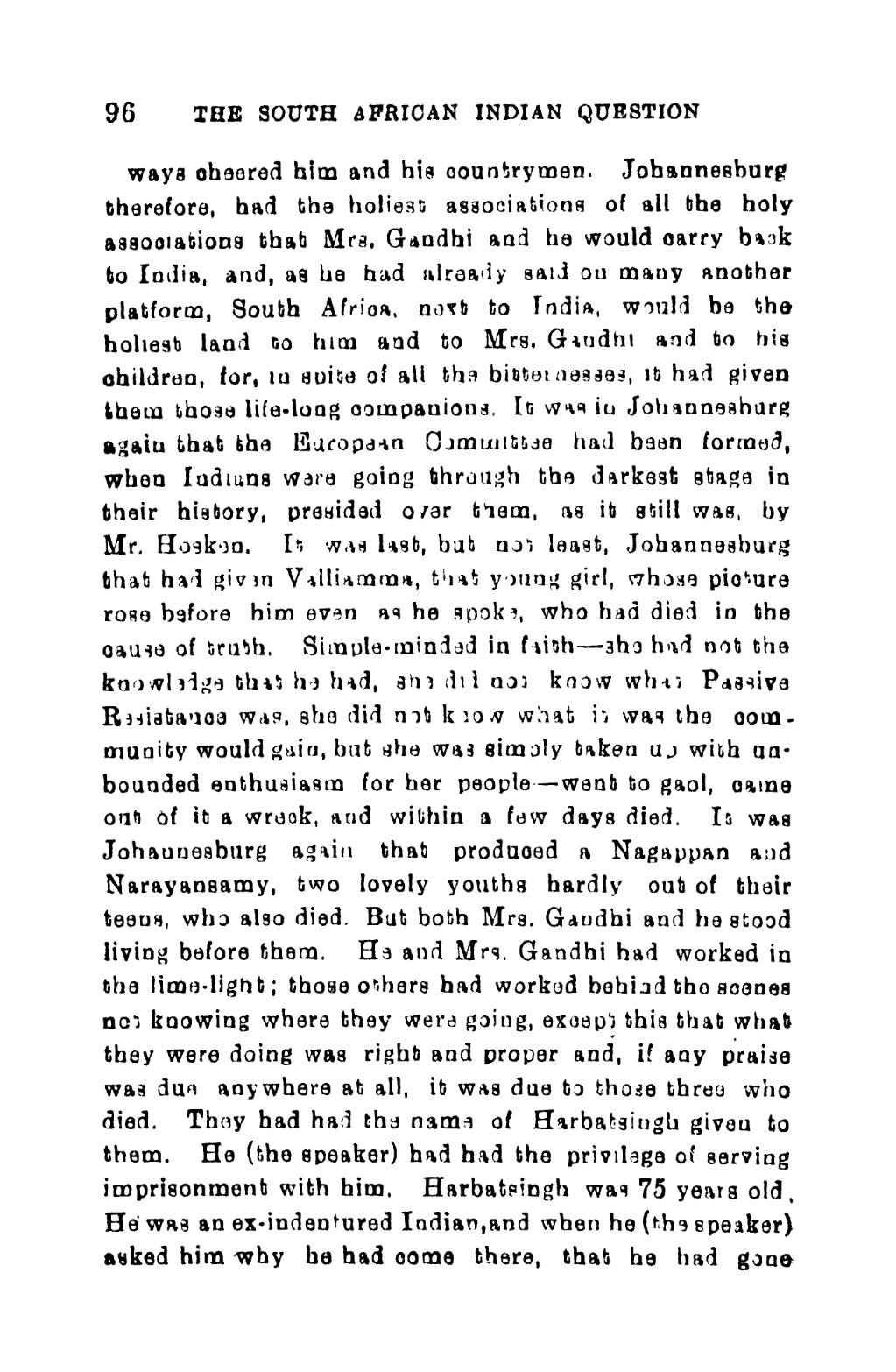96 THE SOUTH AFRICAN INDIAN QUESTION ways cheered him and his countrymen. Johannesburg therefore, had the holiest associations of all the holy associations that Mrs. Gandhi and he would carry bask to India, and, as he had already said on many another platform, South Africa. next to India, would be the holiest land to him and to Mrs. Gandhi and to his children, for, in suite of all the bitteinesses, it had given them those life·long companions. It was in Johannesburg again that the European Committee had been formed, when Indians were going through the darkest stage in their history, presided over them, as it still was, by Mr. Hosken. It was last, but not least, Johannesburg that had givin Valliamma, that young girl, whose picture rose before him even as he spoke, who had died in the cause of truth. Simple·miuded in faith--she had not the knowlsdgethatl1»sl1ad, sha dll non know what Passive Resistance was, she did not k non what it was the com. munity would gain, but she was simoly taken no with nn- bounded enthusiasm for her people-—-went to gaol, came out of it a wreak, and within a few days died. It was Johannesburg again that produced a Nagappan and Narayansamy, two lovely youths hardly out of their teens, who also died. But both Mrs. Gandhi and he stood living before them. He and Mrs. Gandhi had worked in the limelight; those others had worked behind tho scenes not knowing where they were going, except this that what they were doing was right and proper and, if any praise was due anywhere at all, it was due to those three who died. They had had the name of Harbatsingh given to them. He (the speaker) had had the privilege of serving imprisonment with him. Harbatsingh was 75 Years old, He was an exdndenlured Indian,and when he (the speaker) asked him why be had come there, that he had gone
Page:Speeches And Writings MKGandhi.djvu/186
Appearance

